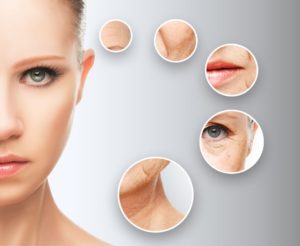You might have observed a pouting pair of lips on a magazine cover or the TV screen. It looks so natural, and you can hardly notice if it is lip augmentation. Fuller, beautiful lips can make you look younger and more attractive. Lip fillers have become one of the most popular non-surgical treatments worldwide. What are the lips fillers, and are they really safe? Read on to learn the answers.
What are Lip Fillers?
Lip fillers, also known as lip injections or dermal fillers. They are a type of cosmetic treatment designed to enhance the appearance of lips by improving volume and shape.
There are two types of lip fillers. Permanent lip fillers and temporary lip fillers. The permanent fillers provide long-lasting results and are typically made of silicone or polymethyl methacrylate (PMMA) microspheres. They do not break down or get absorbed by the body over time.
On the other hand, temporary fillers are composed of biodegradable materials such as hyaluronic acid. It naturally gets absorbed by the body over time. The results of temporary fillers last from a few months to a year, depending on the type of filler used and how quickly your body metabolizes it.
Permanent lip fillers provide long-lasting results but have more significant risks and potential complications, such as filler migration, granulomas, and infection. However, temporary fillers are safer as they allow easier adjustments and reversals. In addition, they tend to produce more natural-looking results.
Benefits of Lip Fillers

The benefits of hyaluronic acid lip fillers vary from person to person and depend upon individual needs and preferences. Primarily they increase lip volume, improve the symmetry of lips, make them look more balanced and even, create a youthful and rejuvenating appearance, and boost self-confidence.
Are Lip Fillers Safe?
Hyaluronic acid lip fillers are FDA-approved; as long as a qualified and experienced injector performs them, they are safe. However, the results can be undesirable if lip fillers are not properly administered. Sometimes, the area on and around the lips appears asymmetrical, bruised, bumpy, and swollen. In addition, the overfilling of lips causes the typical “duck lips” look. But the good news is the results of hyaluronic acid fillers are not permanent. Instead, the effect reversed in a few months. However, long-term damage can occur if the filler is injected incorrectly in the wrong area. In worst-case scenarios, vascular occlusion happens when blood starts flowing from a critical artery. Only an experienced and trained professional knows how to administrate lip injections and avoiding devastating complications properly.
Do Lip Fillers Hurt?
Experts take every precautionary measure to ensure the painless lip filler treatment. For example, a numbing cream may be applied to the lips and let sit for a few minutes to avoid discomfort during the procedure. Patients slightly feel a pinch and some pressure. However, the injections are generally tolerable.
The provider techniques play a vital role. An injectable expert always uses a gentle hand and microcannula to reduce pain during lip filler treatment.
Recovery After Lip Fillers
Lips are a sensitive part of the face, so the risk of getting bruising and swelling is common even after taking preventive measures. Lips appear bigger right after the procedure. The swelling subsides in a week or two. You can use arnica gel to heal the bruising faster or makeup to cover it up. Getting the lip fillers done a month before a big event is always recommended, so you get enough time for healing and look your best on an important day.
Schedule Your Lip Filler Consultation at James Christian Cosmetics
Finding lip filler is right for you is all about listening to your goals, answering your questions, and addressing your concerns. You can count on James Christian Cosmetics. We are available in New York and Miami. Please call us to book a free consultation with our experts.
*Information in this article is not medical advice and may not be factually accurate. It is intended for entertainment purposes only. Consult with a physician before attempting any tips in this blog post and to get the most up to date factual data about any procedure or treatment.













